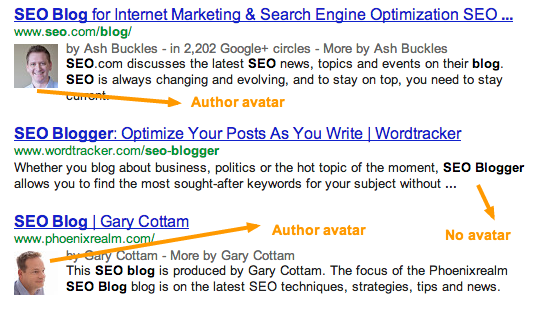Google changed their algorithm so much since early 2012 that the SEO game has changed completely. In this post, I’ll explain how SEO is different now from what it was a year ago, and tell you what you need to do to be more visible on Google, Yahoo and Bing.
Implement Schema.org Tagging
![]()
Search engines are pretty good at indexing your website content, but not so good at interpreting what your content actually means. That’s why Google, Yahoo and Bing released schema.org, a platform that allows you to tag your HTML code to tell the search engines what type of content you have on your pages. For example, if you have a product on a page, you need to use the “IndividualProduct” tag. If you mention a retail store, you should use the tag “LocalBusiness”.
There are tags for events, reviews and videos. There are literally hundreds of tags you can add to your pages to help the search engines identify the type of content on your site. You can find a full list of the tags here.
If you are looking for a more detailed explanation about schema.org, this is an excellent resource. If you have a WordPress site, this plugin allows you to create Schema tags without writing any HTML code. And, don’t forget to use Google’s Structured Data Testing Tool to test your tags to make sure they’re set up correctly.
Keep in mind that this is a very time-consuming process and you’ll need to keep doing it as you add new pages to your site. But, if you take the time to do this, Google will reward you with much more visibility.
Put the Users First

The days of stuffing pages and blog posts with keywords are over. Add value to your website by hiring the best designer you can afford, focus on quality copy that will boost conversion rates, and add images and videos to your pages; search engines love multimedia content.
Before Google released the Panda and Penguin algorithm updates, sometimes you had to choose between doing something to make Google happy or doing something to make your visitors happy. Now your focus should be on creating a great experience for your visitors and Google will reward you for it. How great is that?
Stop Obsessing About Rankings
Picking a handful of keywords and tracking their rankings is so 2010! This is a bad idea for three reasons:
- Google personalizes search results, so maybe you’re ranking #2 on your computer but when someone searches for you from a different location and IP address, you’re in position #20.
- You could be ranking really well for a keyword but not get any clicks due to a poor page title and meta description, or for the lack of site links and schema.org metadata. Compare these two results:


The first one has a review in the meta description and shows a rich-snippet for the reviews. The second one doesn’t display any metadata and has ellipses in the meta description, which reduces the click-through rate. - Most websites get the vast majority of their organic traffic through hundreds of long-tail keywords (such as “wooden Fender Stratocaster” as opposed to “guitar shop”). Your focus should be on increasing your organic traffic and the number of sales or leads from organic traffic; stop obsessing about the ranking of specific keywords.
Implement Rel=Author

One of the most exciting Google updates is rel=author. This is a tag that you should be using in every piece of content you create to indicate you’re the author of such content. It doesn’t matter whether you post the content to your site or to a third-party site, by adding the rel=author tag you’ll be increasing you “author rank.” The more Google trusts your content, the better it is going to rank. This is a great way for Google to reward authors that create content that people like and share.
This is a great tutorial from Google on setting up your author profile and linking it to your content.
Create Content People Will Share

Link building is dead. Getting thousands of crappy links from low-quality link farms and directories won’t help you rank better or get more traffic. Don’t get me wrong: links are still very important, but the way to get them has changed significantly. It used to be about “building” links and now it’s about “earning” links. How can you earn links? Create content people will share.
Ask yourself, “is this content so amazing that when the thought leaders in my space see it they’ll want to share it with their audiences?” If the answer is “no,” come up with a better piece of content. It used to be better to do 10 good blog posts a month than one outstanding one; now it’s the complete opposite. Focus your time on one piece of content that will knock the ball out of the park. This will get you the links and social shares needed to increase your website authority and help you rank better for all your pages and keywords across the board.

